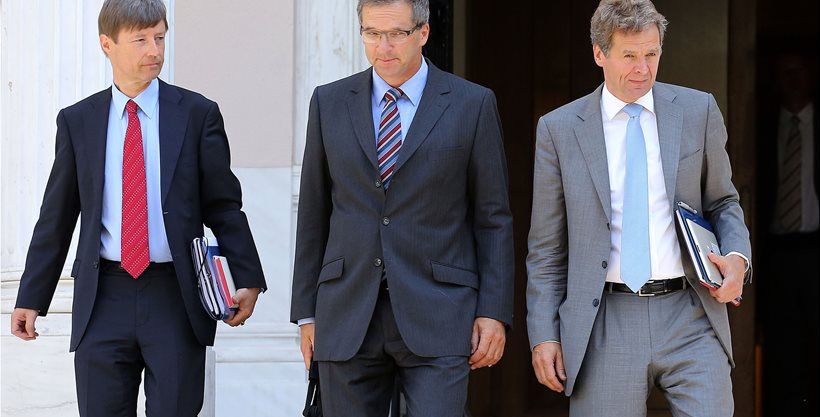Greece’s troika of international creditors from the European Commission (EC), European Central Bank (ECB) and the International Monetary Fund (IMF) are coming to Greece for the fifth review of Greece’s economic reform program due to begin on Tuesday. In an effort to prepare for talks with the troika, Greek Finance Minister Gikas Hardouvelis is meeting with a number of ministers on Monday beginning with discussions from 10 a.m. through to 11 p.m. this evening.
A meeting late on Sunday between Mr. Hardouvelis and Labour, Social Security and Welfare Minister Yiannis Vroutsis was focused on the start of Tuesday’s negotiations. Following this meeting, Mr. Vroutsis was asked whether a legislative amendment providing for the settlement of social security funds arrears in multiple installments would be tabled. He said that no such issue had arisen. He appeared hopeful over upcoming meetinga concerning discussions on mass dismissals and legislation changes for unions. Mr. Vroutsis will meet with the troika on Thursday.
On Monday, Mr. Hardouvelis has scheduled meetings with:-
* Development and Competitiveness Minister Nikos Dendias and Justice Minister Charalambos Athanassiou to discuss non-performing laws and the bankruptcy code.
* Administrative Reform Minister Kyriakos Mitsotakis for the evaluation scheme, dismissals and the enw salary chart for the public sector.
* Environment, Energy and Climate Change Minister Yiannis Maniatis to discuss energy institutions and the opening of the natural gas market among other things.
* Health Minister Makis Voridis for a focus on health expenditure because the troika is still worried that there is waste that threatens the primary surplus despite Draconian cuts to the health sector.
The government has eight das to convince the troika that it:-
* can achieve a primary surplus of 1.7% of the GDP for 2014 (+2% to the memorandum’s goals).
* ask for the “loosening” of the targets for the primary surplus by 0.2 units for 2015 and up to 0.7 units from the Memorandum’s targets (2.3% instead of 3%) in order to include some tax breaks in the October 6 budget.
* an upward review of the GDP (in October) based on figures of the Hellenic Statistical Authorities (ELSTAT).
* a faster return to bonds markets to avoid pressure for a third bailout from the EC once the IMF leaves.




































